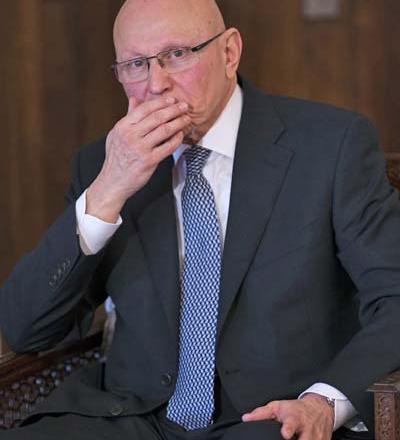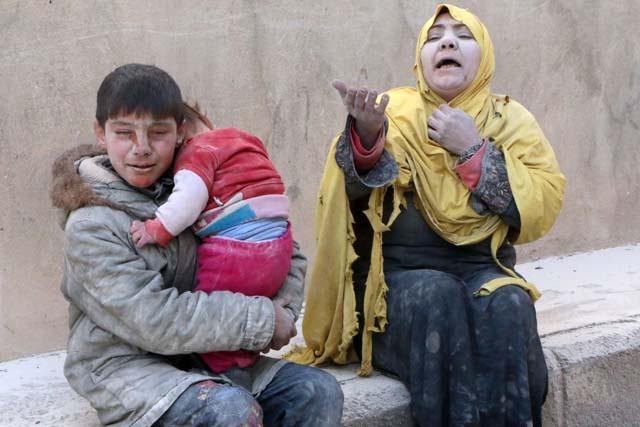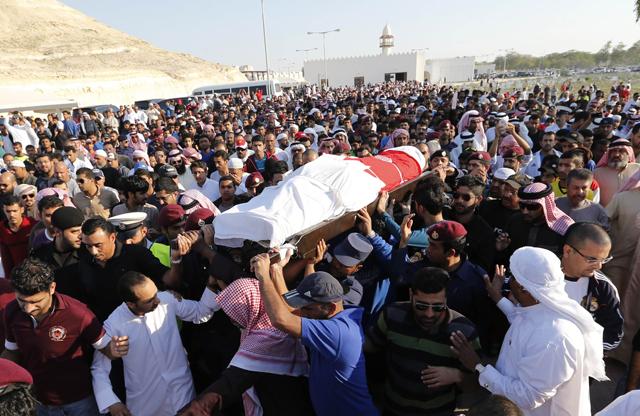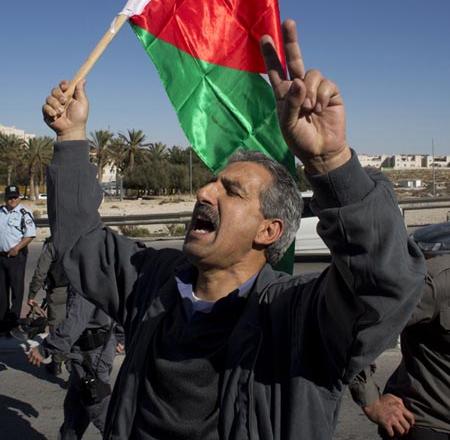BEIRUT — Lebanon on Saturday announced the formation of a compromise government after a 10-month political vacuum during which the war in neighbouring Syria exacerbated longstanding divisions.
The 24-member government brings together the powerful Shiite movement Hizbollah and its allies with the Sunni-led bloc of former prime minister Saad Hariri for the first time in three years.
“After 10 months of efforts, of patience, a government protecting the national interest is born,” said Tammam Salam, Lebanon’s new prime minister.
“It is a unifying government and the best formula to allow Lebanon to confront challenges,” said Salam, who was tasked with forming the government back in April 2013, after the resignation of his predecessor Najib Miqati.
The announcement ends a political stalemate that left Lebanon without a government even as the conflict next door spilled over, with car and suicide bomb attacks striking Beirut and elsewhere.
Multiple attempts to resolve the government crisis stumbled over disagreements between the Hizbollah and Hariri blocs, which back opposing sides in the Syrian conflict.
Hizbollah is allied with Syria’s President Bashar Assad and has dispatched fighters to bolster his regime in its fight against an uprising.
Hariri is a fierce opponent of the government in Damascus and backs the Sunni-led uprising against Assad.
Compromise agreement
Saturday’s compromise, which has been months in the making, is intended to ensure neither the Hizbollah nor the Hariri bloc has veto power over the other.
It divides the 24 portfolios into three groups, with Hizbollah and Hariri’s blocs each taking eight ministries, and the final eight going to candidates considered to be neutral.
To preserve the delicate balance between the country’s 18 sects, the government is also equally divided between Christian and Muslim representatives.
Hizbollah’s political wing will have two ministries — industry and minister of state for parliamentary affairs — with its allies taking portfolios including the foreign ministry and energy ministry.
A single portfolio was awarded to a woman, with neutral figure Alice Shabtini taking the displaced persons ministry that handles the cases of people displaced during Lebanon’s 1975-1990 civil war.
Hariri paved the way for the breakthrough when he announced in a U-turn last month that he was willing to allow his so-called March 14 bloc to join a government with Hizbollah.
The decision was a bitter pill for the former prime minister, who is fiercely opposed to Hizbollah.
Five Hizbollah members are currently on trial in absentia at a special court in the Hague for their alleged involvement in the 2005 assassination of Hariri’s father and ex-premier Rafiq Hariri.
Hariri’s decision has not been welcomed by all those in his bloc, with the Christian Party Lebanese Forces refusing to join any government that includes Hizbollah.
‘Concessions’
Sources within March 14 said Hariri had made a number of “concessions” to Hizbollah, which won several key portfolios for its Christian ally Michel Aoun.
His son-in-law Gebran Bassil becomes foreign minister, and fellow bloc member Arthur Nazarian will be charged with the powerful energy ministry.
Hariri also reportedly compromised on two initial candidates for interior minister, both of which were rejected by Hizbollah’s bloc, party sources said.
Hariri has said his decision was justified by the country’s desperate need for leadership as it struggles with the spillover from the war in Syria.
Hariri, who is based in Paris, offered Salam his congratulations after the government was announced.
He said he hoped the government would be “able to deal with the constitutional and national challenges, with the responsibility required at this crucial period of the country’s history”.
The new government will have no shortage of challenges ahead of it, first among them likely to be the security situation.
In recent months, a string of bomb attacks have rocked the capital Beirut and other parts of the country, largely targeting Hizbollah strongholds but killing civilians.
Jihadist groups, some linked to those fighting in Syria, have claimed responsibility and said the attacks are a response to Hizbollah’s role in the Syrian conflict.
Lebanon is also struggling under the weight of nearly one million Syrian refugees, who are testing the country’s already-limited resources.














